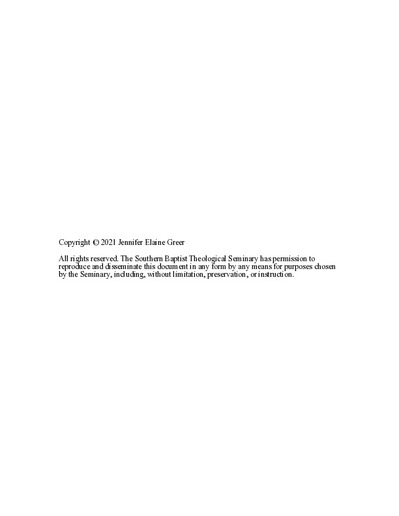The Utilization of a Theology of Human Embodiment to Address Body Image
Subject
Bible. Corinthians, 1st, XI, 12-20--Criticism, interpretation, etc.Human body--Religious aspects--Christianity
Body image--Religious aspects--Christianity
Abstract
Despite the reality that spiritual aspects of the Christian faith are lived through the physical body, Christians historically neglected the body and elevated the soul. Old Testament believers valued body and soul, while New Testament believers fell prey to philosophical teachings that denigrated the material realm. Platonic and Gnostic philosophies influenced many Christological heresies that denied the fleshy existence of Christ. These ideologies sparked immoral living as believers reckoned that present physical actions were of no consequence. This dissertation deduces a theology of the body from Paul’s confrontation of this errant thinking in 1 Corinthians 6:12-20. In this passage, Paul argues for the value of the body based in Trinitarian involvement with the body—through the bodily resurrection of embodied believers by the Father, the bodily atonement offered for embodied believers by the Son, and the bodily indwelling of believers as embodied representatives of God by the Holy Spirit. These truths begin to form the way in which Christians think about their bodies—because Father, Son, and Spirit each affirm the body in united yet specific ways, the body is worthy of respect and honor. From this theology of the body, my work seeks to form a proper, God-honoring body image, wherein the body is affirmed by God and therefore good. A right body image must begin with a Christian worldview—not the fleeting worldly standards of physical appearance—and revolve around God’s declarations about the body. From Paul’s treatise on the body in the midst of a Gnostic, body-abusing culture, I derive fifteen principles about corporeal existence that lay the groundwork for proper body image. Equipped with these fifteen principles, anyone can construct and maintain a God-honoring body image, no matter one’s gender, age, or physical condition.

